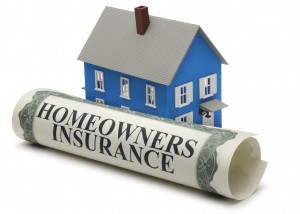Homeowners Insurance ~ Protecting Your Home
Everyone knows that a homeowners policy is necessary to protect their house against a major loss like a fire or a hurricane, but there are many other property coverages you may also need. A lot of these are provided as part of this “package” policy. It automatically provides coverage for any other structures on your premises, such as sheds or fences or pools. There is also coverage on the personal property of the owner, usually at a limit of 50% of whatever the limit is on the house. The homeowners policy also provides a limit for any extra expense you incur if you have a major loss and need to move out of your home until it has been rebuilt or repaired. (Condominium unit owners need to be especially careful that this limit is high enough, as the time to rebuild a multi-unit building would be more than for a single family home.) Another important protection included is personal liability coverage. This is vital in case someone is injured on your premises and you are sued.
It is important to note that the homeowners policy does not cover damages due to a flood. It also does not cover damage caused by an earthquake, although this can be added by endorsement. There are many other coverage options, so be sure to discuss the policy limitations with your agent to assess what you might need.
Here on the coast, we have a problem due to the possibility of hurricanes. Many companies will either not write business here at all, or they have stopped accepting new business. The policies in force will have either a wind deductible (which kicks in for damage from any storm, any time); a named storm deductible (which applies if the damage is from a named tropical storm or hurricane); or the best option, a hurricane deductible. These deductibles can be very high as they are usually a percentage of the limit on the house. Check your policy and be prepared for this should you have a claim of this type.
Remember when you are considering coverage options that your homeowners policy should protect you against a catastrophic loss; select your basic policy deductible accordingly! The higher the deductible, the lower the premium, so take the highest you can afford. If you are experiencing financial difficulties, talk to your agent about other ways to save. You can often get an account credit when your automobile insurance is with the same company. (There are also many auto policies with discounts when your homeowners policy is written by the same agent, even if it’s with the FAIR Plan.) You can pare the homeowners policy down to essentials by eliminating some of the optional coverages. Although this will mean that you could be without important coverage at the time of a loss, it’s better to cover your largest exposure (the house) than nothing at all.
When dealing with homeowners insurance, you should look at the big picture and yet also think in terms of the “worst case scenario” so you are not caught short if a disaster occurs. Your insurance agent can help you understand the best options for your particular situation.
About the Author: Suzanne Bryden is a personal lines manager at Rogers & Gray Insurance Agency and has resided in Sandwich since 1968. Having worked in the insurance agency system for the past forty years, she is very familiar with the problems facing homeowners on the Cape.



